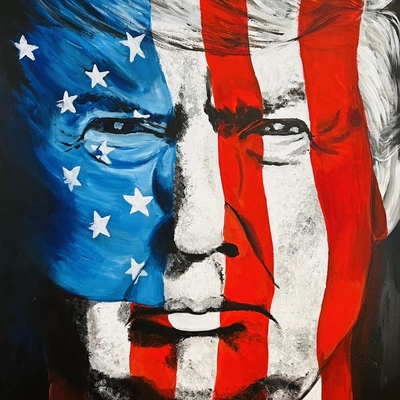Stay informed on the latest Truth Social posts from Donald Trump (@realDonaldTrump) without the doomscrolling. Consider it a public service for your mental health. (Why?)
- Armenia and Azerbaijan engaged in a bitter conflict for over 35 years, resulting in tremendous suffering.
- Previous attempts by many to find a resolution to the conflict were unsuccessful.
- Through an Accord, peace has finally been achieved.
- President Trump successfully brokered this historic peace deal.
The described peace deal between Armenia and Azerbaijan, while regionally significant, does not inherently contain elements that would directly and immediately impact the broader S&P 500. There are no mentions of major economic policies, globally significant companies, or supply chain disruptions that would typically move the index.
The post describes a successful peace deal that resolves a long-standing conflict between Armenia and Azerbaijan. The narrative focuses on de-escalation and resolution, indicating a reduction in geopolitical risk for the specific region mentioned rather than an increase in the likelihood of international conflict escalation.
- Commodities: The peace deal focuses on regional stability in the South Caucasus. There are no direct implications for global commodity prices such as Oil (WTI) or Gold (XAU/USD). The conflict area, while strategically located, does not represent a primary driver for global commodity markets. Short-Term Watchlist: None. Medium-Term Focus: None.
- Currencies (Forex): The resolution of a regional conflict between Armenia and Azerbaijan is not expected to have a material impact on major global currencies, including the US Dollar Index (DXY), EURUSD, or USDJPY. Any impact would be limited to the currencies of the involved nations, which are not globally traded. Short-Term Watchlist: None. Medium-Term Focus: None.
- Global Equities: The S&P 500, Nasdaq, STOXX 600, Nikkei 225, or Hang Seng are highly unlikely to be affected by this specific regional peace agreement. The narrative does not present any information that would trigger risk-on/off sentiment or sector rotation on a global scale. Short-Term Watchlist: None. Medium-Term Focus: None.
- Fixed Income (Bonds): This peace deal is not anticipated to influence US 10Y and 2Y yields or cause a flight to safety into bonds. There are no fiscal, monetary, or systemic risk implications that would drive changes in bond markets. Credit spreads are also unlikely to be affected. Short-Term Watchlist: None. Medium-Term Focus: None.
- Volatility / Derivatives: The VIX (CBOE Volatility Index) or broader derivatives markets are not expected to react to a regional peace deal. There is no information suggesting increased market uncertainty or the need for hedging strategies related to this event. Short-Term Watchlist: None. Medium-Term Focus: None.
- Crypto / Digital Assets: Bitcoin (BTC) and other digital assets are not correlated with or impacted by regional peace agreements of this nature. The post offers no information relevant to cryptocurrency regulation, adoption, or liquidity cycles. Short-Term Watchlist: None. Medium-Term Focus: None.
- Cross-Asset Correlations and Systemic Risk: The post describes a resolution of conflict, which generally reduces, rather than creates, systemic risk. There are no indications of liquidity stress, margin calls, or breakdowns in normal asset correlations. Short-Term Watchlist: None. Medium-Term Focus: None.
- Retail Sentiment / Market Psychology: The content is political and geopolitical, focusing on a specific foreign policy achievement. It is not of a nature that typically triggers retail speculation in meme stocks or altcoins, nor does it present direct market opportunities that would engage retail traders en masse. Short-Term Watchlist: None. Medium-Term Focus: None.

